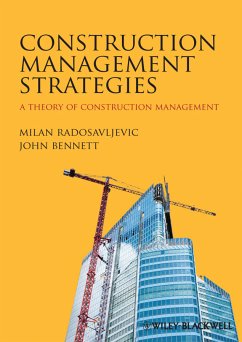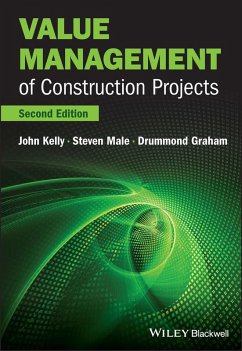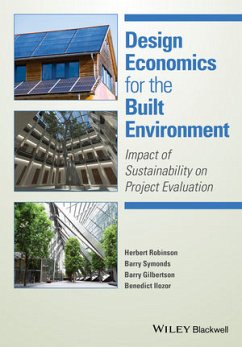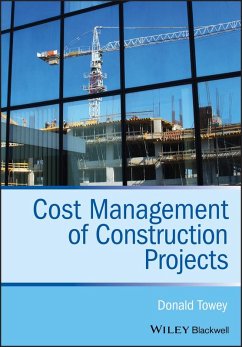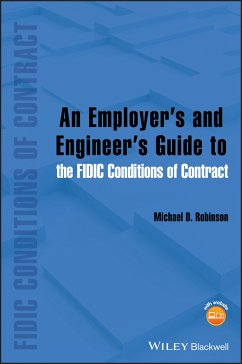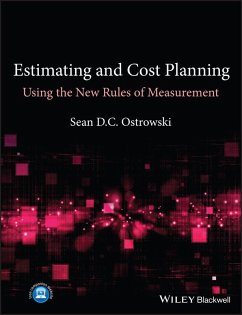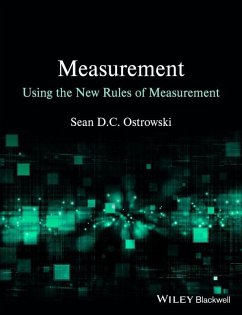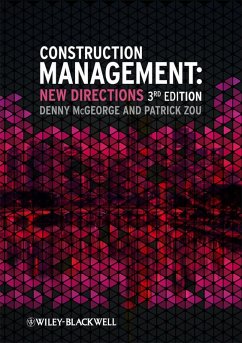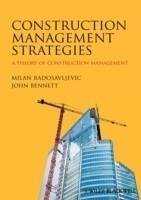
Construction Management Strategies (eBook, PDF)
A Theory of Construction Management
Versandkostenfrei!
Sofort per Download lieferbar
50,99 €
inkl. MwSt.
Weitere Ausgaben:

PAYBACK Punkte
0 °P sammeln!
An authoritative textbook on construction management offering a clear model for understanding theoretical aspects.The construction industry has become a truly global network of interconnected stakeholders making demands which require the involvement of skilled workforces from all over the world. Construction Management Strategies sets the foundations for understanding and managing construction's inherent complexity and uniqueness. It establishes clear definitions of commonly accepted terms like built environment, construction, civil engineering, etc. which are often given confusing and conflic...
An authoritative textbook on construction management offering a clear model for understanding theoretical aspects.
The construction industry has become a truly global network of interconnected stakeholders making demands which require the involvement of skilled workforces from all over the world. Construction Management Strategies sets the foundations for understanding and managing construction's inherent complexity and uniqueness. It establishes clear definitions of commonly accepted terms like built environment, construction, civil engineering, etc. which are often given confusing and conflicting interpretations. It cuts through the plethora of overlapping role titles currently used in the construction sector that make it difficult to establish how projects are actually managed.
Construction Management Strategies:
The construction industry has become a truly global network of interconnected stakeholders making demands which require the involvement of skilled workforces from all over the world. Construction Management Strategies sets the foundations for understanding and managing construction's inherent complexity and uniqueness. It establishes clear definitions of commonly accepted terms like built environment, construction, civil engineering, etc. which are often given confusing and conflicting interpretations. It cuts through the plethora of overlapping role titles currently used in the construction sector that make it difficult to establish how projects are actually managed.
Construction Management Strategies:
- Offers a robust and consistent theoretical basis to explain the performance of the main approaches to construction management.
- Describes corporate and project management in construction as an integrated whole.
- Provides the basic toolkit a student needs to think through the practical situations they will later face.
- Helps bring the theory of construction management to international students who struggle to find a solid grounding in this complex and fragmented subject.
- Includes a companion website featuring a wealth of directly transferable examples for students, as well as PPT slides and topic discussion ideas for lecturers.
Dieser Download kann aus rechtlichen Gründen nur mit Rechnungsadresse in D ausgeliefert werden.




